- Home
- Tim Lebbon
The Everlasting
The Everlasting Read online
RAVE REVIEWS FOR TIM LEBBON!
“Tim Lebbon moves me, challenges me, and makes me remember how rich our particular strange bent can be.”
—Jack Ketchum, bestselling author of The Girl Next Door
“Lebbon is quite simply the most exciting new name in horror in years.”
—SFX Magazine
BERSERK
“Tim Lebbon is a master of fantasy and horror, and his visions make for disturbing and compelling reading.”
—Douglas Clegg, author of The Attraction
DESOLATION
“Lebbon’s work is infused with the contemporary realism of Stephen King and the lyricism of Ray Bradbury.”
—Fangoria
“Creative, intelligent, and absolutely enthralling. . . . Utterly fresh and innovative, Desolation proves once again that Tim Lebbon is the Grand Master of Horror today.”
—Horror Web
“Lebbon’s imagination is one to be reckoned with . . . Desolation will keep you thinking to the very last page.”
—The Horror Channel
FEARS UNNAMED
“Lebbon is a genuinely masterful writer . . . [with] fresh ideas, shimmering prose, and often terrifying scenarios.”
—Rue Morgue
“. . . Lebbon doesn’t give you a chance to catch your breath. Incredible stories that take you to four different levels of fear and back again. . . . Lebbon is one of the best new faces in horror, and you cannot ignore him!”
—Horror Web
MORE RAVES FOR TIM LEBBON!
FACE
“Intense and affecting, Face will seize and hold your attention from the opening paragraph to the end. A writer blessed with extraordinary gifts, Lebbon’s chief talents lie in exploring the darker moments of everyday life. . . . A true disciple of the dark, Lebbon’s imagery wrings true fear from his audience.”
—Hellnotes
“Lebbon’s novel will reward the careful reader with insights as well as gooseflesh.”
—Publishers Weekly
“Lebbon draws the reader into this nightmare to experience the horror with his characters. [He] taps into our universal fear of the unknown, the unseen, keeping this reader looking over her shoulder to catch that slight movement of shadow glimpsed out of the corner of her eye.”
—CelebrityCafe.com
THE NATURE OF BALANCE
“Beautifully written and mysterious, The Nature of Balance will put some readers in the mind of the great Arthur Machen. But with more blood and guts.”
—Richard Laymon, bestselling author of The Beast House
“Vibrant, exploding with imagery, Tim Lebbon takes you on a white-knuckle ride of uncompromising horror. This is storytelling at its best.”
—Simon Clark, author of Death’s Dominion
“As fascinating as his plot is, it’s the beauty of his prose that raises his work to a higher level.”
—Gauntlet
GHOSTLY INTRUDERS
Scott opened his eyes. And screamed.
The garden was full of dead people.
It was still his front garden. He recognized the plant pots in the shape of boots, the inexpertly trimmed bushes, and the gate with one broken hinge. And beyond the garden the world was still there; Mrs. Hacker was in the distance now, and Scott could still see her casually wild brunette hair farther along the street, and neighbors’ cars sloping into and out of the gutter.
But standing in the garden were monochrome images of people he had never known, and none of them were alive. He would have known that even if it were not for the evidence of their deaths; fractured skulls, ruptured chests, pale, drawn faces still twisted with the pain of their final moments. A few of them looked almost serene, but their eyes always bore the truth. These ghosts were haunted.
None of them was completely motionless. A few wavered in his sight, as though distorted by heat haze. One or two swayed where they stood, like drunks at the end of a long dark night of obsession and addiction.
Others were moving slowly towards the house. . . .
Other books by Tim Lebbon:
BERSERK
DESOLATION
FEARS UNNAMED
FACE
THE NATURE OF BALANCE
Contents
Chapter One: the dread of a lost letter
Chapter Two: shapes in dust
Chapter Three: a time beyond belief
Chapter Four: a book blighted by death
Chapter Five: broken chords
Chapter Six: a cool, gray day
Chapter Seven: real memory
Chapter Eight: in memory of fleeting friendships
Chapter Nine: whole new world
Chapter Ten: the testimony of scars
Chapter Eleven: the loyalties of flesh and blood
Chapter Twelve: in the gaze of the real world
Chapter Thirteen: sigh in a hurricane
Chapter Fourteen: fabled screams
Chapter Fifteen: in the blink of an eye
For Granddad
DORCHESTER PUBLISHING
Published by
Dorchester Publishing Co., Inc.
200 Madison Avenue
New York, NY 10016
Copyright © 2007 by Tim Lebbon
All rights reserved. No part of this book may be reproduced or transmitted in any form or by any electronic or mechanical means, without the written permission of the publisher, except where permitted by law. The scanning, uploading, and distribution of this book via the Internet or via any other means without the permission of the publisher is illegal and punishable by law. Please purchase only authorized electronic editions, and do not participate in or encourage electronic piracy of copyrighted materials. Your support of the author’s rights is appreciated.
This is a work of fiction. Names, characters, places, and incidents are either the product of the author’s imagination or are used fictitiously. Any resemblance to actual persons, living or dead, events, or locales is entirely coincidental.
Trade ISBN: 978-1-4285-1751-6
E-book ISBN: 978-1-4285-0229-1
First Dorchester Publishing, Co., Inc. edition: May 2007
The “DP” logo is the property of Dorchester Publishing Co., Inc.
Printed in the United States of America.
Visit us online at www.dorchesterpub.com.
“A dreamer lives for eternity.”
—Anon
“Life is pleasant. Death is peaceful. It’s the
transition that’s troublesome.”
—Isaac Asimov
CHAPTER ONE
the dread of a lost letter
The memories were most treasured when they came unannounced. Like rays of sunlight through stormy clouds, or sweet cherries in a bowl of sour grapes, they never failed to make Scott smile. He could be cooking dinner, dusting bookshelves, walking in the woods, staring from the window, or drifting into sleep, and Papa would appear.
“Nettles don’t sting on Saturdays,” his grandfather says, and Scott, seven years old at the time, reaches out and is stung from palm to elbow. The old man laughs uproariously, leaning back to shout at the sky. Through the prickle of tears Scott laughs with him. Even at that tender age, before he knows anything of ghosts and damnation and the pains of death, he realizes that the old man is special.
“Men were made to be inebriated,” Papa whispers, “because that can be the best time to see the truth.” Scott plays in the pub garden while his grandfather sits and drinks. Sometimes other men gather around and are lost within a haze of pipe smoke and profanity, but every now and then he sees his grandfather’s cautious eyes peering from the miasma, bright and watchful and alert, checking that Scott is safe. He offers a secret grin, as if to say, I may be sitting here with the
se wizened old men, but I’m your age at heart, Scotty.
The last time Scott saw his grandfather, the old man opened his eyes, just a crack, and whispered, “I’m not afraid, because I know the truth. And one day I’m going to tell you.” He never heard his grandfather speak again. The old man had already been dead for three days, and these last words were whispered from his open coffin.
Scott had been sixteen years and sixteen days old when he stared down at the body of the man he loved so much. The corpse’s wrinkled face—not so wrinkled in death, as his mother pointed out, not so pained—was blurred by Scott’s tears, the gray eyelids made to flicker, and that brief semblance of life made the tears feel good. He reached out and touched his grandfather’s cheek, and even the cool finality of that contact could not change the way he felt. It was a shock, seeing the old man like this, a man so vital and strong, motionless and quiet at last.
There were muted sounds of conversation, some shuddery tears, a sad little laugh from his mother as her sister sighed something into the air, but the dead man was the center of the room. Scott knew that, because Papa had always possessed such power.
Sixteen-year-old Scott had never really heard those final words, of course. Not through his ears, at least. Perhaps his tears made the man’s cool white lips twitch, and the clicking in his ears as he sobbed combined with the breath shuddering in his chest to form those sounds: “I’m not afraid, because I know the truth. And one day I’m going to tell you.”
Scott had always called his grandfather Papa, and Papa had loved him dearly.
The first time he ever hurt Scott was three decades after his death.
The letter took so long to hit the floor that Scott thought he’d been mistaken. Perhaps he had only dreamed the familiar sound of the mail slot snapping shut. He lay still, breathing softly, listening for the postman’s footfalls retreating along the street. But he heard only peaceful breathing from Helen beside him, and the cheerful sound of birdsong.
He yawned, rubbed his eyes, and scratched his head, and then the letter dropped to the floor downstairs, delivered in slow motion. He felt as though he’d slept and dreamed between the snap of the mail slot and the landing of the letter. Papa’s voice haunted that dream, though the words were old and decayed, like thoughts long gone. His wife grumbled something in her sleep. She sounded agitated. Scott sat up and rested wearily on the edge of the bed.
The sun was blazing behind the curtains, and the bedroom was already warm. It was going to be a lovely day.
He walked quietly out onto the landing. Scott enjoyed receiving mail. For every dozen circulars, invitations to own a credit card, and appeals for charity, there was one postcard or a letter from an old friend. He didn’t even mind the bills, because they were addressed to him. We’re all just fleeting dreams, his grandfather had once said in one of his more subdued moments. Scott wanted his dreams to be alive, to persist. Seeing his name in print fixed him to the world.
This morning, looking down from the top of the staircase to the front door, he could see that there was only one envelope lying there.
He went slowly downstairs, yawning and rubbing his eyes again, taking care as his aching, aging knees became accustomed to moving him about for one more day. The birds chattered in the front garden, singing in the morning. The house was silent and peaceful, a home, somewhere lived in and loved in. There was no reason why today should be any different—better or worse, safer or more dangerous—from any other.
As he stepped from the final stair, Scott saw the handwriting on the front of the envelope. Scotty, it said. The only person who had ever called him Scotty had been Papa.
At that moment the world changed around him. It grew stale. And he knew that this dream of his life was close to edging into nightmare.
The ghost found him days after his grandfather’s funeral.
Scott loved to walk in the country—a love that had been instilled in him by Papa—and following the funeral it was the safest way he knew to mourn. His parents’ house was still a sad place, as if echoes of his grandfather lying in the coffin still resided there, sucked into the walls along with decades of cigarette smoke. His mother went to sleep crying and woke up the same way. His father was ineffectual in comforting her, and had taken to spending long hours in their large garden, finding a multitude of tasks that suddenly needed attending. Both of his parents seemed more concerned with the circumstances of Papa’s death than the fact that he was gone. Scott had tried to encourage light back into the house, but he had come to realize that such dark times were sometimes necessary. At sixteen he understood that he still had much to learn about life. This week, he believed he was growing up some more.
His favorite walk was straight out across the field behind their house and into the woods, and that was where he went three days after the funeral. It took him past an ancient oak tree that had been blasted by lightning in the distant past. Most of it was dead, blackened, hollowed out and rotten. Yet parts of it still gamely sprouted leaves each spring, and it dropped a handful of acorns come autumn. The tree provided a den for some of the younger kids in the village, and there was always evidence of their habitation. Scott had never made use of the space and fun the tree had to offer, because Papa had always taken him deeper into the woods to show him more wondrous and secret things. He passed it by with a casual glance. Its hollow trunk was empty but for scattered candy wrappers and a crushed can.
A few steps beyond, with the edge of the woods still in sight, he heard the first footsteps behind him.
He spun around, expecting to see one of his friends creeping up on him. He didn’t relish company right now; their sympathies would be awkward. But there was no one there. Only the tree, standing sentinel even so long dead.
The footfalls had stopped as soon as he turned his head, and he guessed it must have been the breeze in his ears, the sun on his neck, the throbbing wound he still nursed inside from Papa’s violent death.
When he turned to start again toward the woods, the thing was standing before him. It raised a hand, and he fell back before he had a chance to see it properly: a vision of black, something old and scarred by time. It swept forward, and cool, dry fingers caressed Scott’s throat.
“Where is the Chord of Souls?” the thing sighed.
Scott tried to cry out, but something like smoke pressed across his open lips, and he tasted soil, tobacco, and spice.
“Where is the Chord of Souls?” the thing asked again, leaning over him now, blocking out the sun. It kneed him in the stomach and Scott gagged, winded, desperate to draw in a breath past the soft hand blocking his mouth and nose. He thumped his feet on the ground and tried to twist his head. The tightness in his chest brought panic closer, and for those few seconds the thing became quiet and still, staring down with fluid eyes, as though this act of suffocation were the answer it sought.
The shape’s fingers splayed, and Scott drew in a stuttering, deep breath. “What?” he asked. He tried to raise his arms, but they lay heavy and useless.
“Where is it? The old bastard couldn’t have taken it with him. He couldn’t have!”
Scott shook his head, and now he could see the thing above him at last. It was a man, that was all, a small, wizened old man with hair yellowed by decades of smoking, skin grizzled and creased by years in the sun or a lifetime of sorrow. His eyes held madness and sadness both: madness at what he had lost, and sadness that it would likely never be found again. Even then, Scott saw desperation in this old man’s eyes.
And panic. He looked like someone for whom time had already run out.
“Don’t know what you want,” Scott said.
“You tell me now, boy. You take me to it! Your grandfather wouldn’t have left it unresolved.” The man leaned back, giving Scott room to breathe. He looked away across the field. His eyes seemed strange, as though they reflected nothing. “Tell me he didn’t leave things undone. . . .”
Scott wanted to shout for help. Perhaps if he screamed at the top o
f his lungs his mother or father would hear him, or someone in the neighboring houses. Or maybe the shout would simply frighten this old weirdo back into whatever hole he’d crawled from. But when Scott drew in a deep breath and readied himself—muscles tensed, hands clawing at the dried corn husks scattered across the ground beneath him—the old man changed. His age became power, not a hindrance. His eyes narrowed and filled with something so much more threatening than madness. And Scott felt heat exuding from him, like a breeze of hot air in the height of summer, an old, dry heat that had been stored and fed and nurtured for longer than Scott could hope to understand.
In that moment, Scott recognized him at last. “No!” he said. It could not be.
“Tell me,” the man said. His breath made the air unreal. His presence here belied the safe truth of the field, the woods, the oak tree.
“You’re dead,” Scott said.
The old man closed his eyes and slumped forward, drawing into himself as if searching for some deeper meaning. A bird chirped somewhere in the distance. The man glanced that way and the bird fell silent.
“You have one more chance,” he said. “The Chord of Souls.”
What can I do? He was trapped here, restrained by this dead man. Papa’s friend. The man Papa had murdered before taking his own life, and now here he was, returned to ask Scott about something Scott knew nothing about.
“He would have shown you,” the old man said, looking away across the fields, his expression turning desperate. “He would have told you.”
And then Scott remembered those final words his grandfather had somehow relayed to him, through Scott’s tears and sighs of grief. I’m not afraid, because I know the truth. And one day I’m going to tell you.
“Ahhh,” the dead old man said, seeing realization dawning in Scott’s eyes.
“He told me he wasn’t afraid,” Scott whispered, “but he didn’t tell me why.”
For a second or two Scott believed he was going to die. This illusion would release the violence simmering beneath its leathery skin, and its fists would rain down, elbows, knees, and gnashing teeth tearing and pummeling until Scott was dead. But as certain as he was of this fate, he could do nothing to prevent it. His arms were still heavy by his sides. And even though the man had stood and was no longer touching him, Scott still felt stuck to the ground. If he attempted to stand he would fall from the world.

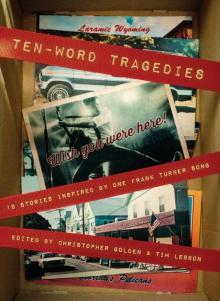 Ten-Word Tragedies
Ten-Word Tragedies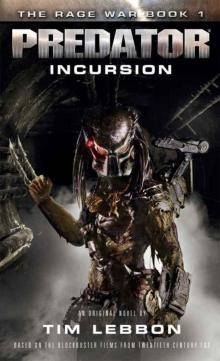 Predator: Incursion
Predator: Incursion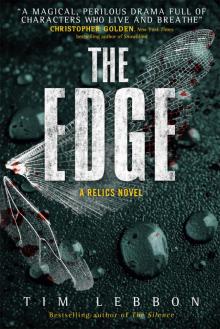 Relics--The Edge
Relics--The Edge Firefly
Firefly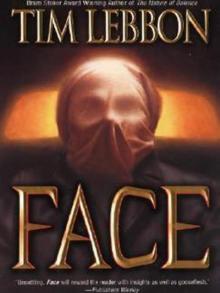 Face
Face Generations
Generations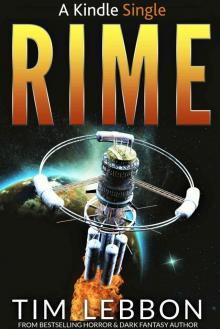 RIME (Kindle Single)
RIME (Kindle Single) Fallen
Fallen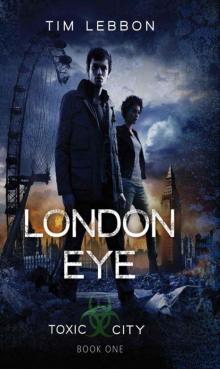 London Eye tc-1
London Eye tc-1 Kong: Skull Island
Kong: Skull Island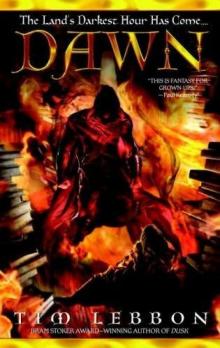 Dawn n-2
Dawn n-2 Into the Void: Star Wars (Dawn of the Jedi)
Into the Void: Star Wars (Dawn of the Jedi)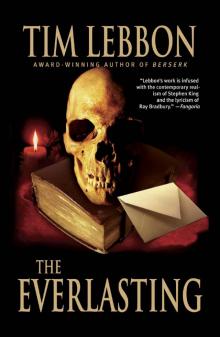 The Everlasting
The Everlasting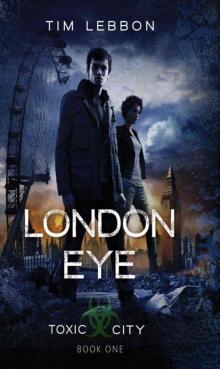 London Eye: 1 (Toxic City)
London Eye: 1 (Toxic City)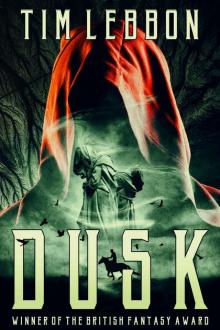 Dusk: a dark fantasy novel (A Noreela novel)
Dusk: a dark fantasy novel (A Noreela novel)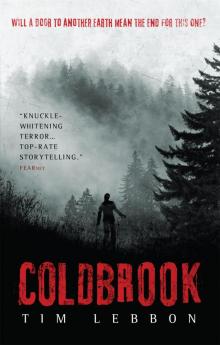 Coldbrook
Coldbrook Alien
Alien Dusk
Dusk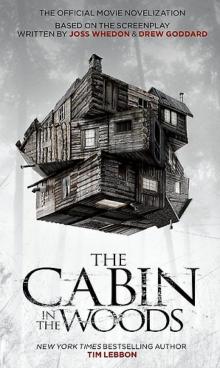 The Cabin in the Woods
The Cabin in the Woods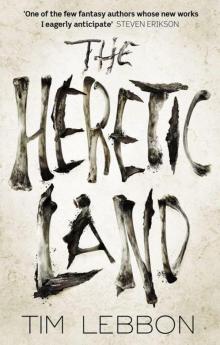 The Heretic Land
The Heretic Land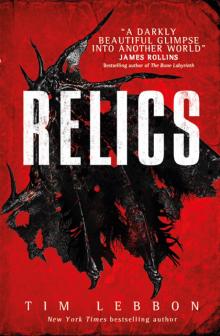 Relics
Relics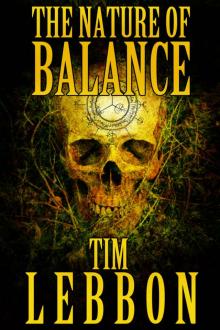 The Nature of Balance
The Nature of Balance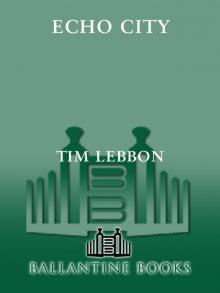 Echo City
Echo City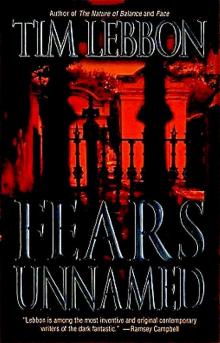 Tim Lebbon - Fears Unnamed
Tim Lebbon - Fears Unnamed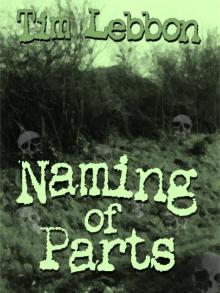 Naming of Parts
Naming of Parts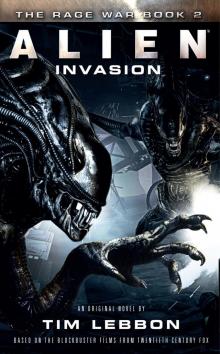 Alien--Invasion
Alien--Invasion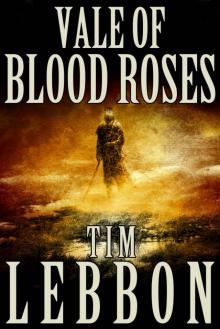 Vale of Blood Roses
Vale of Blood Roses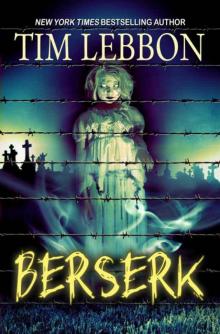 Berserk
Berserk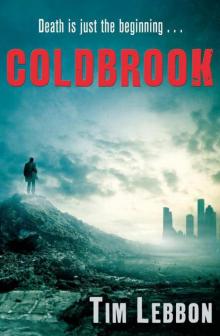 Coldbrook (Hammer)
Coldbrook (Hammer)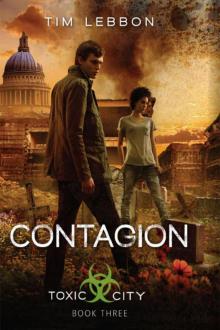 Contagion tc-3
Contagion tc-3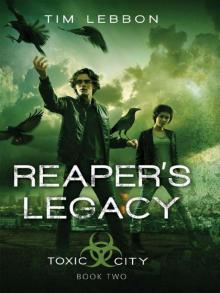 Reaper's Legacy: Book Two (Toxic City)
Reaper's Legacy: Book Two (Toxic City)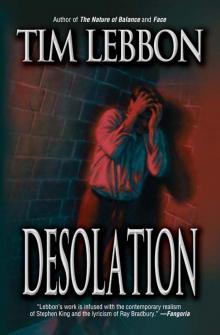 Desolation
Desolation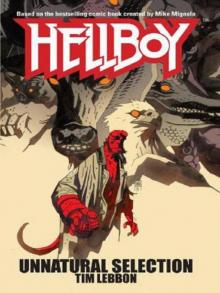 Unnatural Selection
Unnatural Selection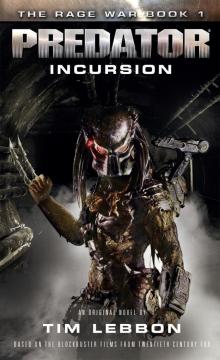 Predator - Incursion
Predator - Incursion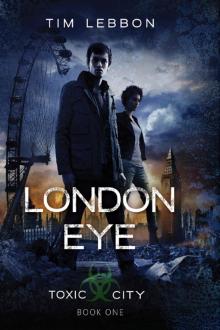 London Eye
London Eye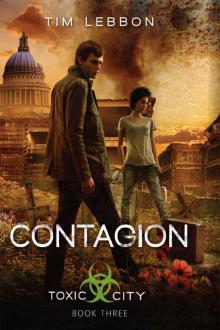 Contagion (Toxic City Book Three)
Contagion (Toxic City Book Three) The Silence
The Silence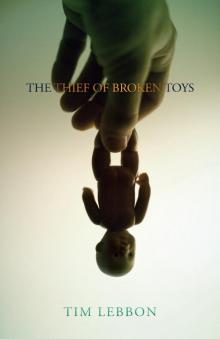 The Thief of Broken Toys
The Thief of Broken Toys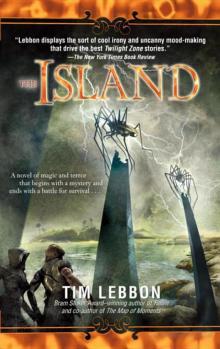 Tales of Noreela 04: The Island
Tales of Noreela 04: The Island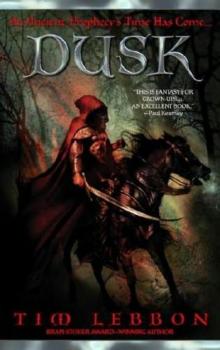 Dusk n-1
Dusk n-1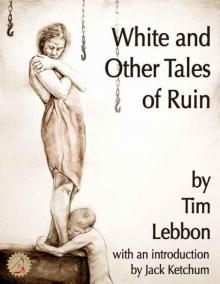 White and Other Tales of Ruin
White and Other Tales of Ruin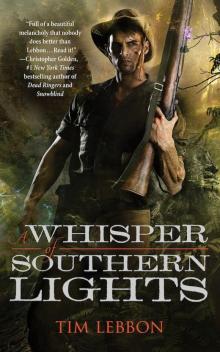 A Whisper of Southern Lights
A Whisper of Southern Lights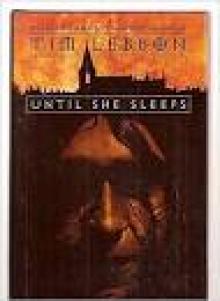 Until She Sleeps
Until She Sleeps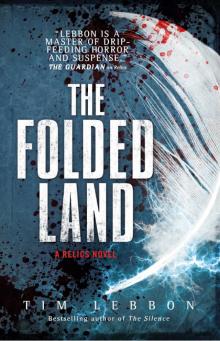 Relics--The Folded Land
Relics--The Folded Land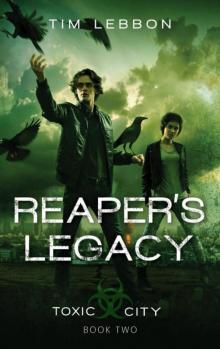 Reaper's Legacy tc-2
Reaper's Legacy tc-2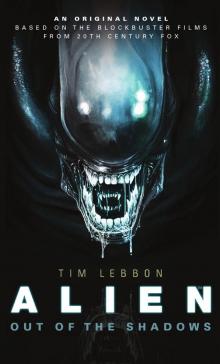 Alien: Out of the Shadows
Alien: Out of the Shadows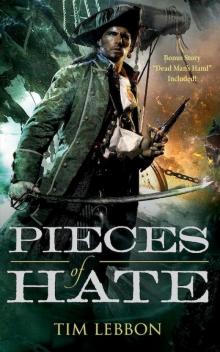 Pieces of Hate
Pieces of Hate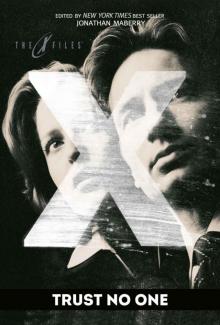 X-Files: Trust No One
X-Files: Trust No One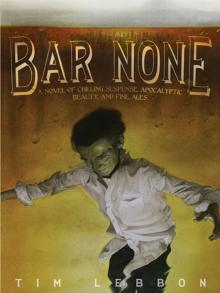 Bar None
Bar None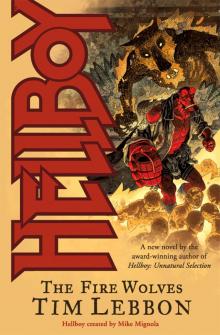 The Fire Wolves
The Fire Wolves